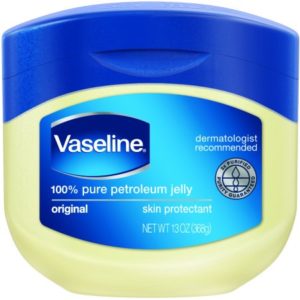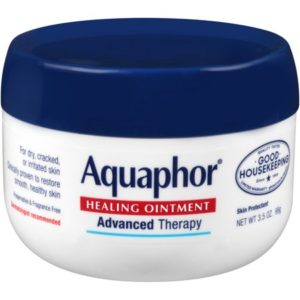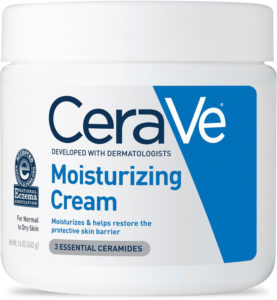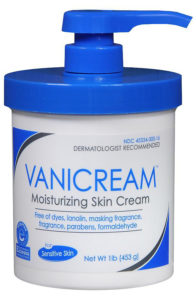
A simple solution to healthy skin.
As we progress through the winter months, it’s crucial to maintain healthy skin by staying moisturized. Our winter climate leads to lower humidity and drier conditions, which has a significant impact on our skin. Additionally, the lipids in our skin (our skin’s natural moisturizer) decrease as we age. If left unchecked, these factors can lead to increased itch, eczema, and may also aggravate other chronic skin conditions.
Moisturizing restores the skin barrier.
This mechanical barrier prevents water loss from the skin and also acts as protection against allergens and irritants. Maintaining this barrier through moisturizing promotes good skin health.
The best moisturizers are NOT the expensive ones.
Contrary to popular belief, the best moisturizers are ones that contain inert ingredients and are fragrance-free, usually not the most expensive moisturizers you might find at high-end stores. Moisturizers come in three forms: ointments, creams, and lotions.
Ointments


Ointments are the best moisturizers. The gold standard is regular Vaseline. Many dermatologists consider Vaseline the best overall moisturizer, as its structure is most similar to the natural ceramides and lipids present in the stratum corneum (the top layer of the skin which forms the majority of the skin barrier). The downside to Vaseline and other ointments (including Aquaphor, Vaniply, or Cerave Healing Ointment) is their greasy consistency since they do not rub in and can stay on the skin for prolonged periods of time. They can also stain clothing.
Creams
Creams are excellent moisturizers. Contrary to ointments, they rub into the skin and many people prefer this property as opposed to the greasiness of ointments. Creams are water-based and contain a slightly higher alcohol content, so they may sting if you have cracks in your skin (an ointment may be a better choice in this case). Creams usually come in big tubs and are thick, allowing you to scoop them out. Good moisturizing creams include Cetaphil or Cerave products. For patients with eczema who are especially prone to allergies, Vanicream is a good choice as it is free of fragrances, dyes, lanolin, parabens, or formaldehyde. These products can be found in any retail store or on Amazon.


Lotions
Lotions are used very commonly but are generally poor moisturizers. They have a liquid consistency and often come in a pump bottle. Due to the higher alcohol content, they tend not to be as moisturizing as ointments and creams, and they can sometimes sting.
Some natural products work too.
Many patients prefer natural products, and some of these are good moisturizers as well. These include cocoa butter, coconut oil, or shea butter formulations. Some patients are prone to eczema or have sensitive skin, and I generally prefer these patients not use these products as they may contain allergens and can cause allergic reactions; even chemicals found in nature can cause allergies (poison ivy is one example!). These oil-based products are also comedogenic (clog pores) and can aggravate acne, so we don’t recommend using them on your face. When in doubt, please ask your dermatologist about the products you are using.
You Can’t Over-Moisturize!
Lastly, it’s important to remember moisturizers can be applied as often as you need to and in general, the more you moisturize, the better. The best regimen is to take short tepid showers using mild soaps (Cerave, Cetaphil, Vanicream soaps), pat your skin dry, and then immediately apply the moisturizer of your choice thereafter on a daily basis.
At Dermatology Consultants, we strive to promote the best skin care for you. Please don’t hesitate to ask questions about moisturizers at your future appointment.
Author
